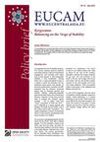The EU and Uzbekistan: Short-Term Interests versus Long-Term Engagement
The EU and Uzbekistan: Short-Term Interests versus Long-Term Engagement
Author(s): Sukhrobjon Ismailov, Jarabik Balazs
Subject(s): Governance, Economic policy, Government/Political systems, International relations/trade, Social development, Economic development, Sociology of Politics
Published by: CEPS Centre for European Policy Studies
Keywords: European Union; Uzbekistan; democratization; politics; governance; poverty; post-Soviet transition;
Summary/Abstract: After fifteen years of independence, there are practically no democratic institutions in place in Uzbekistan. Only a few individuals are struggling to set up any viable alternative. The prevailing Soviet mentality in the country is set against a traditional, archaic group/family-driven political landscape. The lack of freedom has become an enormous obstacle to good governance. In particular, the lack of freedom of religion has been serving as a catalyst for radical Islamisation, due to the complete absence of political space in the country. This was aggravated by dramatic declines in income and employment and the growing poverty during the post-Soviet transition to a market economy. All of this has led to a loss of the stability and security that people previously enjoyed. This mix of economic and political stress is further exacerbated by the ailing regime of Islam Karimov – the only Uzbek establishment known by most Uzbek citizens. Alongside the repressive ruling methods and the increasingly inward-looking focus of the political elite, Karimov’s age has raised the single most important ‘what next?’ question.
Series: EUCAM - Policy Brief
- Page Count: 5
- Publication Year: 2009
- Language: English
- Content File-PDF

